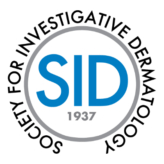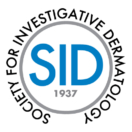Pierre A. Coulombe, Ph.D.
G. Carl Huber Professor and Chair, Department of Cell & Developmental Biology
Professor, Department of Dermatology
University of Michigan Medical School
coulombe@umich.edu
Research interests
Research in the Coulombe laboratory focuses on the regulation of cell differentiation and tissue homeostasis in complex epithelia such as skin, studied from the perspective of a large multigene family encoding keratin intermediate filament proteins.
A major role of keratin filaments is to endow epithelial cells and tissues with the ability to withstand mechanical and other forms of stresses. Genetic mutations that affect the primary structure of keratin proteins compromise this role and underlie several inherited diseases in which epithelial cells are rendered fragile and/or unable to withstand stress. We have been studying the biochemical, biophysical, and structural determinants of this vital role with the goal of exploring novel approaches to treat keratin-based genetic diseases.
A newly defined role for keratin proteins is to bind and modulate the activity of a variety of signaling regulators and effectors. We have found that keratins impact the survival, growth, and architecture of keratinocytes in that fashion in skin epithelia, and that such contributions are crucial during wound repair, in the lifelong developmental growth cycle of hair follicles, and in the context of cancer, psoriasis, and keratin mutation-based skin diseases. Our laboratory discovered and characterized several novel roles for keratin proteins in skin tissue, e.g., the regulation of protein synthesis and cell growth, of inflammation and immune responses, and of the balance between proliferation and differentiation (via Hippo signaling). As part of efforts focused on cancer, the laboratory discovered that keratin proteins reside inside the nucleus, where they impact nuclear architecture, chromatin organization, gene expression, and DNA damage and repair, with direct relevance to tumor biology.
Lab roster: Lab manager (PhD level); 2 postdoctoral fellows; 6 PhD students; Undergrads.
Lab website: https://www.coulombelab.com/
Publications: https://pubmed.ncbi.nlm.nih.gov/?term=coulombe_pa&sort=date&size=200
Funding: The lab has a long history of uninterrupted external funding from the NIH.
Examples of research projects available in the labratory
Comparison of the structure of keratin proteins and polymers with an emphasis on the nucleus and perinuclear compartments in skin keratinocytes.
Pathophysiology of disorders involving mutations in the coding sequence of keratin proteins.
Interplay between keratin and oxidative stress in skin keratinocytes.
Interplay between keratinocytes and other cell types during stress and inflammation in skin.
Role of intermediate filaments during carcinogenesis.
Training and mentoring
Training and mentoring have been very important and rewarding endeavors throughout my career. Currently, I am mentoring six PhD thesis students and two postdoctoral fellows in my laboratory. Twenty students graduated with PhD degrees from research carried out in my lab (at Johns Hopkins – 1992-2017). Of these, 3 are still in training (postdoc level), 9 hold faculty positions, 6 hold staff research positions in industry or government agencies, one is a dermatologist in private practive, and one is a patent lawyer. I have mentored 14 postdoctoral fellows in total, 12 of whom have left the lab for outside positions: 5 hold faculty appointments, 3 are professional researchers, one is undergoing residency training, one is research unit administrator here at U Mich, one is an art gallery director, and one is practicing dermatology in China. My laboratory has trained several undergraduate students over the years, and nearly all of them have gone on to attend a professional school (medicine, dentistry). I have served as Director of a PhD graduate training program entitled “Cellular and Molecular Medicine” at the Johns Hopkins School of Medicine in 2002-08 (120 preceptors; 120 students). I also served as co-director of a PhD training program entitled “Fundamental Training in Cancer Biology” at the Johns Hopkins Bloomberg School of Public Health in 2009-17 (29 preceptors; 35 students). Both training programs were supported by T32 grants (from NIGMS and NCI), for which I served as PI. In my role as department chair at Johns Hopkins University between 2008 and 2017, I led the recruitment of seven faculty members, all of whom established successful and externally-funded independent research programs. I have been chairing the Department of Cell & Developmental Biology at the University of Michigan medical School since 2017, and in that role I continued to be higly engaged in education and training and led the recruitment of two assistant-professors and co-led the recruitment of another assistant professor. I am proud to share that my classroom teaching has been recognized with the Teacher of the Year Award from the JHU Graduate Student Association in 2000, and that an annual travel award for trainees to attend a major scientific conference was instituted in my name when I left Johns Hopkins University in 2017. Finally, I co-chaired the Committee on the Biomedical Scientific Workforce at Johns Hopkins University (2016-2018). Several of the recommendations made by the workforce are directly relevant to training and mentorship (https://provost.jhu.edu/about/biomedicalworkforce/).

